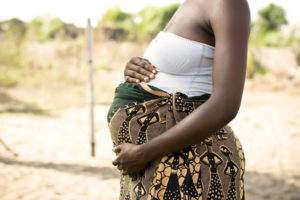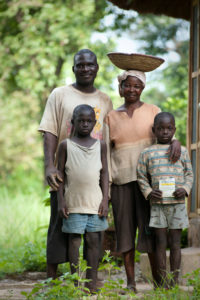With the help of faith leaders in Kenya and Ghana, a Christian humanitarian organization seeks to provide family planning education to those who need it most.

Over several decades, providers of care for pregnant women and their children have come to believe that women who space live births by less than 24 months can suffer from a syndrome known as “maternal depletion” — a combination of nutritional deficits that may result from the stresses of bearing and nursing children. One group of researchers working in a city in Bangladesh found that pregnancies spaced closely together were associated with a number of potential complications for both mothers and children. These risks seem likely to be especially acute in developing countries, where reliable nutrition and regular medical care can be hard to find.
Yet communicating these findings to patients can be complicated. In parts of the world that have wrestled with a colonial past, families sometimes suspect that medical recommendations are motivated by something other than the patient’s best interests. Why believe a nurse or government worker who tells you that deferring a pregnancy will be better for both the mother and her future children? But in many of these contexts, there is one group who are trusted to promote (or discredit) new ideas: community faith leaders. In sub-Saharan Africa, for example, a Gallup survey found that respondents placed greater trust in faith-based organizations than in their own national governments.
Supported by a grant from the John Templeton Foundation, international relief organization World Vision hopes to use the social capital of community faith leaders in Kenya and Ghana to communicate the importance of family planning through community education.
“By influencing faith leaders, we will be able to improve the health practices of those in the developing world,” says Alfonso Rosales, a senior advisor at World Vision.
Getting on the Same Page
World Vision began its project by interviewing faith leaders in order to understand their level of awareness about family planning and to assess their willingness to share best practices in their communities. The results of that work led to the current program, which seeks to educate faith leaders who, in turn, educate community members.
Education seems simple enough: Discover what needs to be taught and develop a curriculum that will apply across both countries. But there is no one-size-fits-all strategy, Rosales says. Each community begins with different beliefs and cultural practices. World Vision must tailor its approach to each community in order to streamline training time and to communicate healthy practices, like pregnancy spacing or HIV/AIDS prevention, more efficiently.
While mothers need to understand how to promote the health of their children, fathers play an equally important role.
“We expect that we’ll be influencing the male population as well,” Rosales says. “They are critical members of these congregations.” As a result, faith leaders are encouraged to provide educational opportunities specifically tailored to male members of the community.
The Proven Power of Education Through Faith Leaders
 The model of teaching through faith leaders has a history of effectiveness. When HIV/AIDS broke out across Africa, NGOs mobilized faith leaders to educate the community on the importance of safe sex.
The model of teaching through faith leaders has a history of effectiveness. When HIV/AIDS broke out across Africa, NGOs mobilized faith leaders to educate the community on the importance of safe sex.
World Vision has worked in Kenya and Ghana for over 30 years, which Rosales says provides them greater initial credibility in these communities. Often, rural populations cast a wary eye toward those outside of their community, especially those seeking to change traditional practices. But World Vision’s long history of helping influence health outcomes in other African communities helps the program navigate these obstacles.
“This level of trust is really important,” Rosales says.